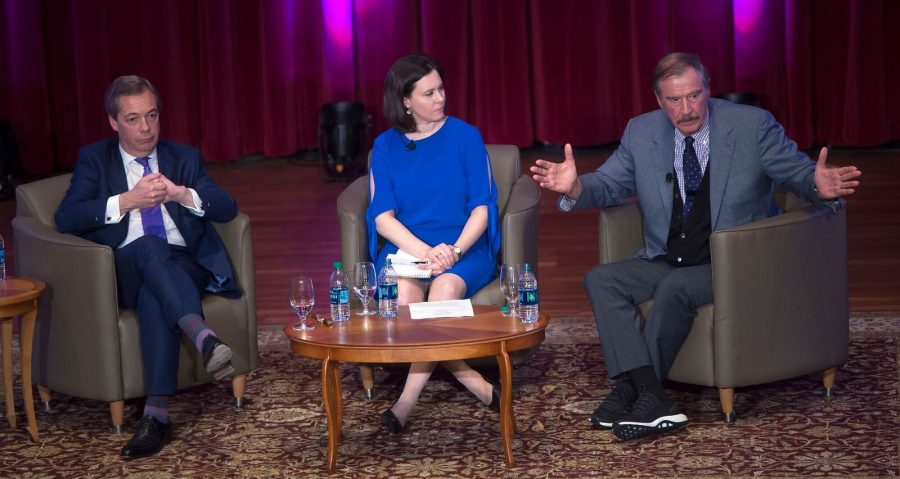As was originally the plan for the viewpoint-diversity initiative, a committee of Lafayette community members will be formed to decide which speakers should be invited by the Lafayette Symposium, President Alison Byerly said.
Two weeks ago, 58 Posse, ISA and other alumni wrote an op-ed entitled “Regarding Nigel Farage, the Mill Series & funding sources: An open letter from alumni.” In it, the alumni raised concerns about the Mill Series receiving funding from outside sources, whereas other student organizations only receive funding from student government.
The most recent Lafayette Symposium-sponsored event was the Nationalism vs. Globalism debate between Nigel Farage and Vicente Fox. Byerly and her cabinet decided to sponsor the debate along with the Steamboat Institute, a conservative organization which promotes free speech. Students, faculty and alumni raised concerns that the invitation of UKIP leader and Brexit architect Nigel Farage created an unwelcoming and unsafe environment for marginalized students. Byerly maintained that the debate was meant to confront the speakers’ views, not endorse them.
Byerly said that at the McDonogh Networking event of black alumni who “stay connected to the college but also offer some support and mentoring to current students,” a signer of the letter approached her and raised the concerns brought up in the letter about the Mill Series funding.
“[The signer and I] talked a little bit about the fact that the college doesn’t control funding that an individual chooses to give to a non-college organization, which the Mill Series is,” she said. “But I did talk about the fact that one of the things we’re doing now with the Lafayette Symposium is we’re in the process of appointing a committee that would advise on programming in the future, so that we’ll have a group of faculty, staff and students who would offer suggestions on what would be appropriate events in the coming years, and we hope to build up funding for that so that that can become a venue for more community-wide programming that is written by a broad community agenda.”
Byerly added that the committee will be appointed by the end of this year and that next year they will be deciding programming going forward. She also stated that the Symposium was not a direct response to the Mill Series.
“It’s not a response to anything in particular, so much as a recognition that almost all of our lecture series are based in particular departments and programs. The Mill Series is different because it’s a separate group outside the college. We only have a few college-wide programs, and the ones we have are endowed with specific purposes in mind…we felt the Lafayette Symposium would be a good way to do community-wide programming that wasn’t limited to particular departments or programs.”
She said she hopes the committee will meet within the next two or three weeks. It will be made up of four faculty from different divisions, “a couple of staff and administration, we’ll ask student government to recommend someone, we’ll ask the Equity, Transformation and Accountability Board to recommend a second student and it will be chaired by [Provost Abu Rizvi],” Byerly said.
Rizvi declined to comment on the committee until it was formed.





















































































































